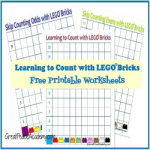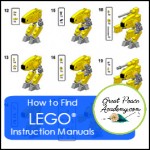
LEGO Therapy for Developing Social Skills
Help Build Social Skills with LEGO® Therapy for Gifted & Other Special Needs Children
Let’s face it many gifted kids and teens struggle to communicate with neurotypical people. It doesn’t matter if they are talking to older, younger or same aged children. The struggle is real. LEGO Therapy is a method developed for kids with autism but the principles of this type of therapy could be used to help gifted and 2e children as well.
This post contains affiliate advertisement links to 3rd party sites.

I am not a licensed therapist. I’m a homeschooling mom to a gifted child. I share this post and ideas for information purposes only. Please check with a licensed physical, occupational, speech, or other therapist, physician, or clinician to determine if this therapy would be beneficial to your child.
LEGO Bricks can be utilized for a variety of play therapies. This particular LEGO Therapy is specific to developing social skills, and interpersonal skills.
What exactly is LEGO Therapy?
LEGO Therapy was first proposed by Daniel B. LeGoff, in Philadelphia PA. It was later researched and developed by Gina Gomez de la Cuesta and her colleagues at the Autism Research Center, or The University of Cambridge.
LEGO Therapy was developed to be a social skills activity for children with autism to encourage working within a peer group. Dr. Gina Gomez shares a short summary of the theory and application of Lego Therapy for children with autism.
How LEGO Therapy Works
Because gifted and 2e children display many of the same characteristics as those with autism, the therapy could be utilized to teach gifted children how to interact with peers in a positive way.
For a therapeutic social skills session for LEGO therapy to be successful you need a group of three kids. This therapy encourages children to want to work as a team.
Within each team of three distinct roles are assigned and the team works together to build with the LEGO Bricks working toward completion of a common goal or challenge.
Team Roles
- The Architect is the holder of the building design instructions. He or she is responsible to communicate with the others what bricks are needed, and how to put them together to complete the plan.
- The Supplier is the keeper of the LEGO Bricks. He/she is responsible for supplying the builder with the correct bricks to complete the project. They listen to the architect in order to know what is needed and then deliver each correct piece at the correct time.
- The Builder is responsible for building the designed project. They take pieces from the supplier and put them together according to what the architects instructs to create the model.
Each member of the team must work together contributing, communicating, and listening to each other. This helps them to develop communication skills, problem solving skills, in addition to sharing both the toy bricks and the responsibility of completing the project.
Through communication this type of therapy serves to develop vocabulary, and understanding of how to effectively communicate.
Discover More Ideas
for LEGO Learning
Learn More about LEGO Therapy
- LEGO Therapy by Hannah Coles at We Love Bricks
- LEGO Based Therapy: Group Intervention Promoting Social Compentence from One Education
- Lego Therapy Resource Pack from TES.com
- LEGO Therapy from Send Success.
- Developing Social Skills And Language Through Lego Therapy at Wakefield Traded Services
Books for LEGO Therapy
- Thera-Build with LEGO: A Playful Therapeutic Approach for Promoting Emotional Well-Being in Children by
- How LEGO®-Based Therapy for Autism Works: Landing on My Planet by Daniel B. LeGoff
Do you have children who are taking therapy that utilizes LEGO Therapy to help them form social and interpersonal skills? I’d love to hear how this technique is working for you/them.

Does your kiddo love all things LEGO bricks? Here’s some great gift ideas.
You May Also Enjoy














